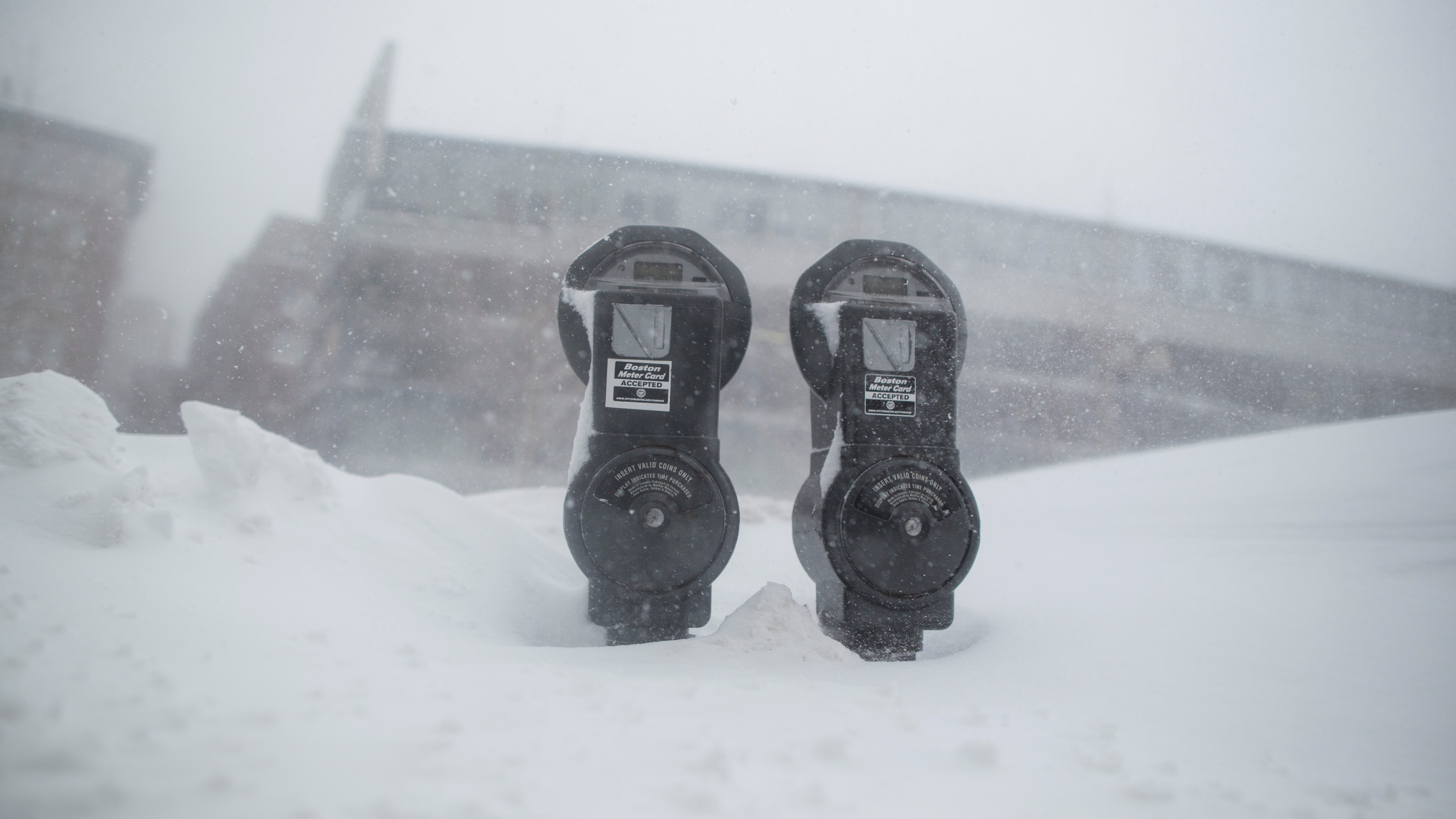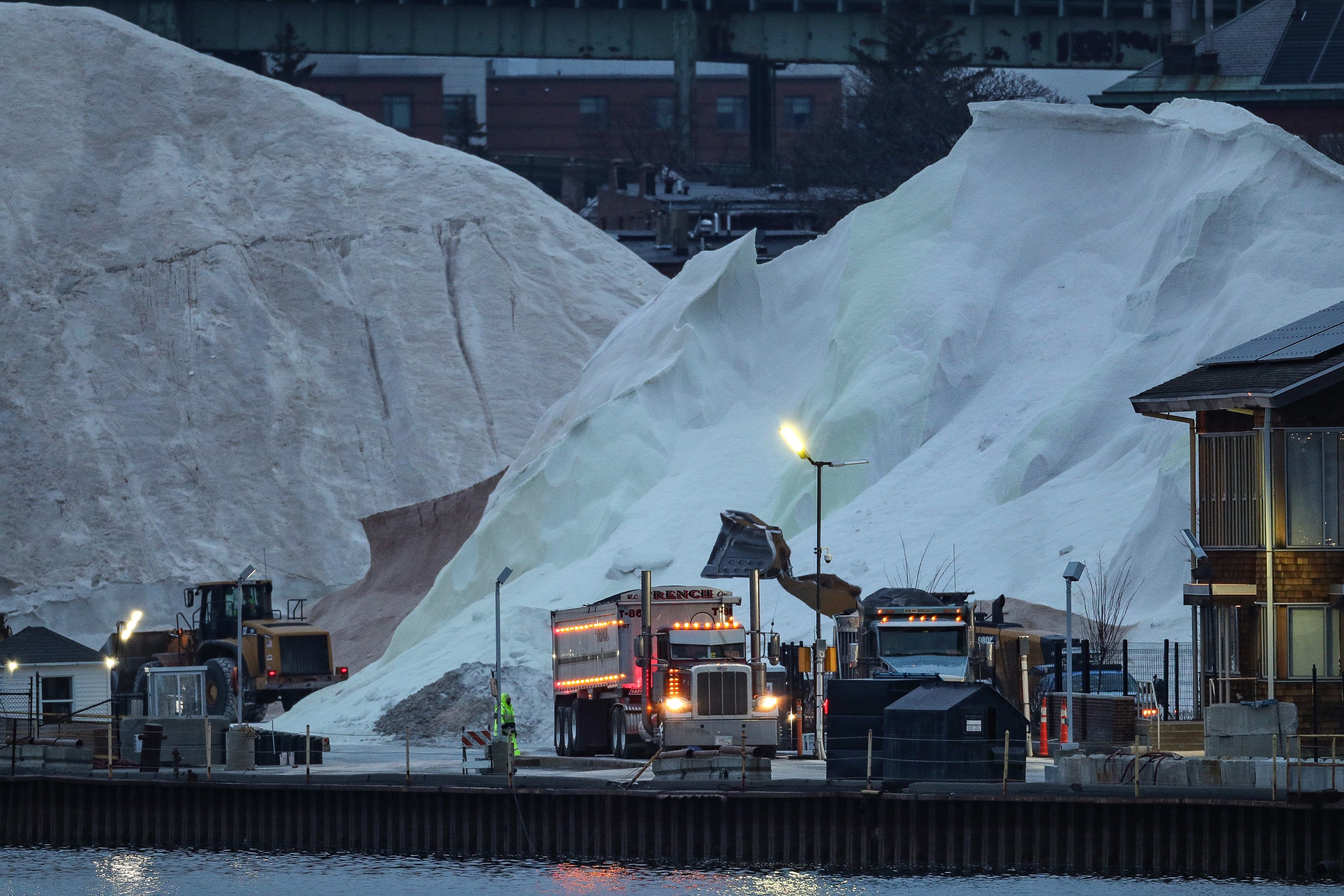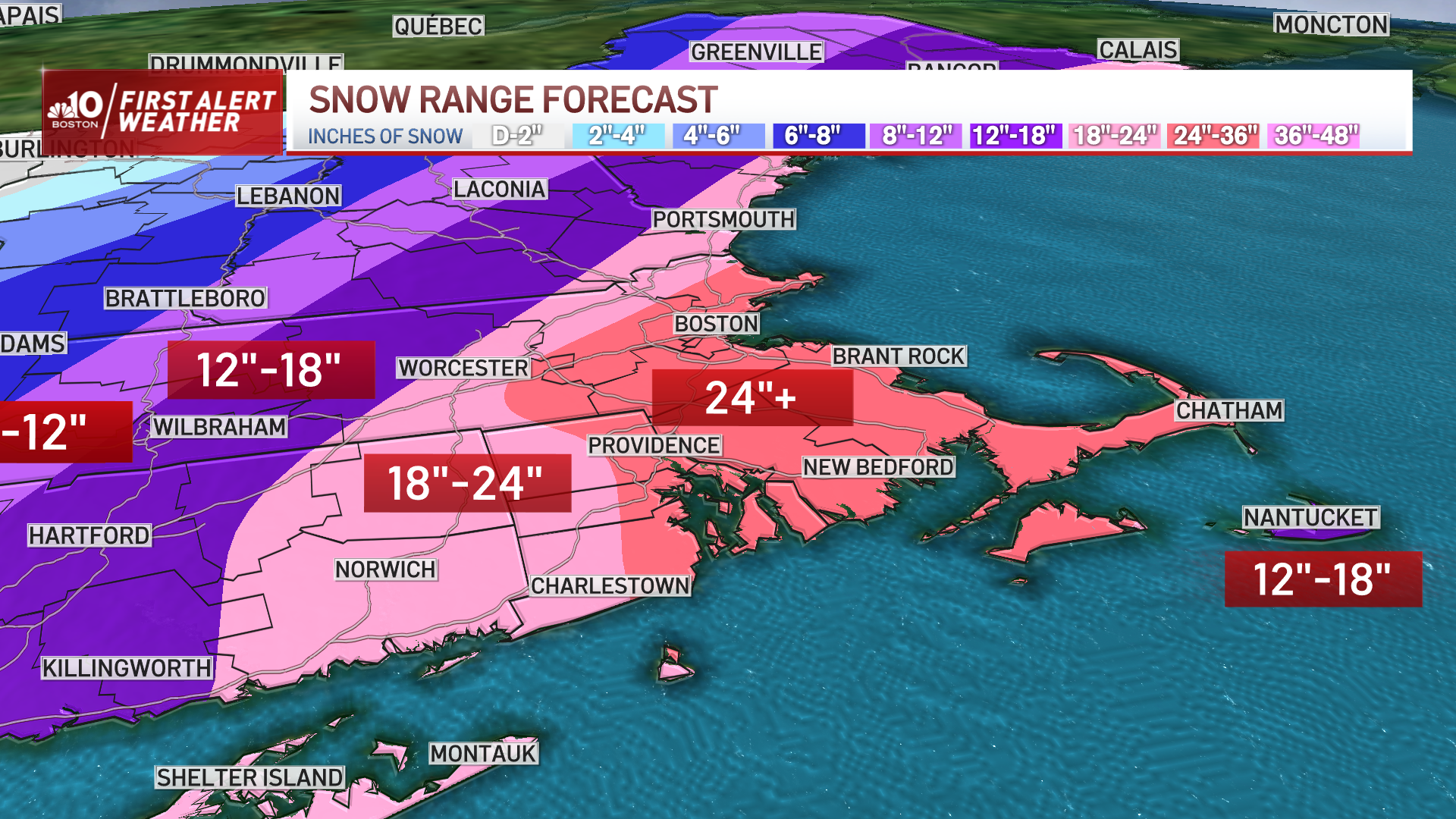Boston Mayor Michelle Wu has declared a snow emergency that starts at 9 p.m. Friday and could continue into Sunday morning.
"It's gonna big a big one," Wu said at a press conference Friday. "This has the potential to be a historic storm."
The National Weather Service has already issued a blizzard warning for Saturday into Sunday and there is the potential for two feet of snow and 40 to 50 mph winds.
“This is likely to be an intense dangerous storm, with heavy snow high winds and whiteout conditions," the mayor said.
Get Boston local news, weather forecasts, lifestyle and entertainment stories to your inbox. Sign up for NBC Boston’s newsletters.
The snow emergency means anyone parked on a main street will need to move their car to make way for plows and emergency vehicles. Free or discounted parking can be found at city garages, which are listed at boston.gov/snow.
Wu said space savers will be allowed, except for in the South End. But they must be removed within 24 hours of when the snow stops falling.
The city has 38,000 tons of salt, 164 pieces of city owned snow management equipment and the ability to put 800 to 900 pieces of equipment on the road with the help of contractors. Still, city officials are urging people to stay off the roads, saying it could take some time to clear streets because of the high rate of expected snowfall.
All Boston Centers for Youth & Families community centers and the Boston Public Library will be closed on Saturday. Wu said the expectation right now is that Boston Public Schools will be open on Monday.
Residents can sign up to receive notifications by phone, text or email at AlertBoston, and are urged to call 311 for non-emergency issues.
Below are some additional tips on how to get thorugh the storm:
Boston snow emergency rules
- A snow emergency has been declared, starting Friday at 9 p.m. A parking ban will also take effect at that time and all vehicles parked on a posted snow emergency artery will be towed to allow for snow clearing operations to take place. Boston residents with a resident sticker can find a list of free and discounted garages here; and parking at participating garages will begin at 7 p.m. on Friday. Discounted parking starts two hours before we declare a snow emergency, and ends two hours after lifting the emergency.
- Trash and recycling pick-up will continue on a regular schedule on Friday (1/28) and resume on Monday (1/31). Residents are encouraged to download the Trash Day App for more information on their trash and recycling pick-up schedule.
- Nighttime street sweeping on main roads, arteries, and commercial roads is canceled until further notice. Updates will be provided on boston.gov when night time street sweeping is scheduled to resume.
- As indicated in signage posted in BPS school parking lots, parking is not allowed in these lots during snowstorms. Vehicles may be towed if they are parked in BPS parking lots during the snow emergency. Towing could start on Saturday and could continue through the weekend until lots are cleared.
- You have 48 hours to use a space saver after the end of an emergency. After that, you must remove it from the street. Please note that space savers are banned in the South End.
Rules on clearing snow
- Property owners must fully clear snow, sleet and ice from sidewalks and curb ramps abutting the property within three hours after the snowfall ends, or three hours after sunrise if the snow ends overnight. Curb and pedestrian ramps to the street should be cleared fully and continually over the duration of the storm to ensure accessibility for individuals with disabilities. If the storm lasts for an extended period of time, property owners are asked to continually check and clear ramps abutting their property.
- Removal of snow and ice from a private property to the street or sidewalk is prohibited.
- Failure to comply with these rules can result in fines issued by the Public Works Department's Code Enforcement Division. Fines associated with improper removal of snow can be found here.
Caring for vulnerable populations
- If you see individuals experiencing homelessness or vulnerable individuals out in the cold who appear immobile, disoriented or underdressed for the weather, please call 911.
- Boston's emergency shelters are open 24-hours a day and accept walk-ins. Amnesty is offered to anyone with a non-violent restriction. Men can access shelter at the 112 Southampton Street Shelter, and women should go to the Woods-Mullen Shelter at 794 Massachusetts Ave. The Boston Public Housing Committee and the City work closely with shelter providers to ensure that no client is without shelter, food, resources, and a warm respite from the cold.
- The BPHC Engagement Center is open from 6 a.m. to 6 p.m. In addition to providing an indoor heated space, it offers a range of basic amenities and comfort items, such as clean bathroom facilities, water, coffee, and light snacks.
- During extreme cold weather, street outreach teams operate with extended hours and provide mobile outreach vans on the streets in the evening and throughout the day.
Safety tips
- Keep catch basins and fire hydrants clear. For a map of catch basins and fire hydrants, visit here. You can assist in keeping hydrants clear of snow so the Boston Fire Department can access them quickly in case of emergency.
- Shoveling snow requires significant exertion; please be cautious and pay attention to signs of overexertion. Stop if you feel chest pain, shortness of breath, lightheadedness, nausea, or vomiting. Call 911 if those symptoms do not resolve quickly.
- Snow piles can make navigating intersections dangerous for pedestrians and drivers. Please take extra care when turning corners with snow piles that might limit visibility.
- Carbon monoxide poisoning is a concern during winter weather, especially with the use of generators. Residents should use their home heating systems wisely and safely, and have a working carbon monoxide detector on each floor of the home. Call 911 immediately if you suspect carbon monoxide poisoning.
- Sitting in a car while idling can be deadly if the tailpipe is blocked. Do not let children sit in an idling car while shoveling. Clear any household exhaust pipes (e.g. gas exhaust for heating systems or dryers) and vehicle exhaust pipes of snow.
- Have a contractor check the roof to see if snow needs to be removed. If roof snow can be removed from the ground with the use of a snow-rake, do so with caution. Avoid working from ladders, and be mindful of slippery surfaces.
Heating safety
- Never try to heat your home using a charcoal or gas grill, the kitchen stove, or other product not specifically designed as a heater. These can cause a fire or produce dangerous levels of carbon monoxide very quickly.
- Have your heating system cleaned and checked annually.
- Install and maintain smoke alarms and carbon monoxide detectors on every level of your home. Carbon monoxide is an invisible gas produced whenever any fuel is burned. Common sources include oil or gas furnaces, water heaters, fireplaces, stoves, and some space heaters. It has no smell, taste, or color, and it is poisonous and potentially deadly.
- Don't place electric space heaters near curtains or other flammable materials. Turn them off before you go to bed.




